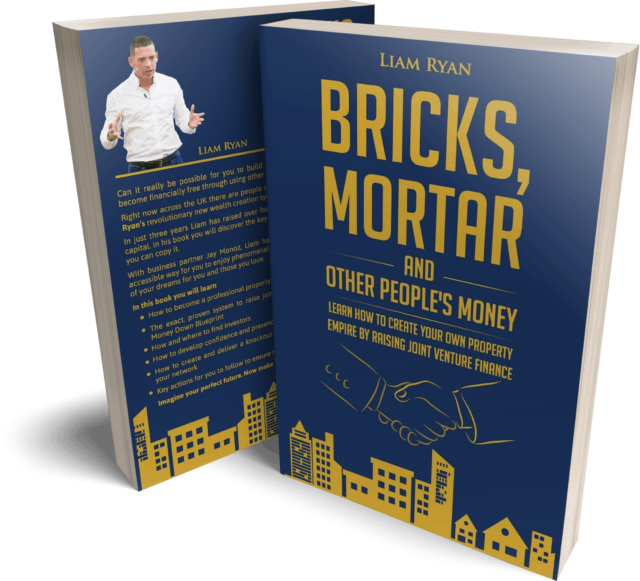Should You Hire A Property Management Company for your property in 2025?

Property investors and landlords need to manage their rental properties, and many choose to use a property management company. This decision affects your overall investment strategy and should be carefully considered. In this blog post, I will explore the services offered by property management companies, the pros and cons, and how you can decide on the best option for you.
Table of Contents
ToggleWhat Do Property Management Companies Do?
Property management companies take over the duties of managing properties on behalf of the property owners. They act as a middleman between the property owner or landlord and the tenants who occupy the property. A property manager’s responsibilities include interacting with tenants as the landlord’s representative, dealing with paperwork and legal requirements, overseeing property maintenance, and ensuring the property is up to industry standards.
Many landlords and property investors who do not live locally to their properties, or have several properties in their portfolio, turn to property management companies to fulfil their obligations towards their tenants.
Do I Need a Property Management Company?
The answer to this question varies depending on the number of properties you have to manage, your own experience of landlord regulations and responsibilities, and the amount of time you can spare for property management. Consider the pros and cons of property management companies below when deciding for yourself.
8 Advantages of Using a Property Management Company
Here are the 8 advantages of using a property management company to manage your rental properties:
1. Industry Experiene
A good property management company will have years of experience in managing properties and have dealt with many common issues that can arise, from evictions and tenant disputes to maintenance and legal requirements. If you have little experience as a landlord, a property management company can be helpful.
2. Point of Contact for Tenants
Tenants can contact the property management company with any queries or issues they have, and they can be dealt with without any involvement from you. As the property owner, you need not have any contact with tenants at all, if you don’t want to.
3. Lower Maintenance Costs
Property management companies usually have their own maintenance team who can keep your property in good shape and do any needed repairs without you incurring additional costs. If you are self-managing the property, you will need to do repairs and maintenance yourself or hire a contractor, which can be expensive.
4. 24-Hour Services
Many property management companies have an out-of-hours service for emergencies, which tenants can access if they have a problem with the property that needs solving immediately. Otherwise, it’s up to you to answer the phone to your tenants at all hours and deal with emergencies.
5. Rent Collection
A property management company can chase tenants for late rent payments, which can be time-consuming and stressful for landlords and property owners.
6. Gives You More Free Time
Managing your own rental properties can be very time-consuming, so a property management company can handle all aspects of property management for you, only contacting you when necessary.
7. Screening of Tenants
Property management companies can screen potential tenants with credit checks, proof of employment, and references, as well as advertising the property to potential tenants, meaning that your property doesn’t stay on the market for too long and is filled with responsible, respectful tenants.
8. Stay Compliant With Regulations
It can be hard to keep up with property regulations in the UK, and a property management company can ensure your properties are compliant with all relevant laws, from EPC ratings and fire risk assessments to gas and electric safety certificates where needed.
Disadvantages of Using a Property Management Company
There are few drawbacks to using a property management company that you should know about, including these 4 drawbacks:
1. Higher Expenses
Of course, property management companies aren’t free, and you will need to account for the additional cost when calculating your profit margins. Some management companies cost more than others, so it is worth shopping around to find a good deal.
2. Lack of Personal Involvement
If you entrust your property management to a third party, you will not be involved in the process of finding and dealing with tenants, which can feel like you are losing control of your property and can cause you more stress.
3. Potentially Poor Service
Not all property management companies are created equal and some will be better than others, and some worse. Poor management can cause more problems than it solves and can lead to tenant dissatisfaction and empty properties. Take the time to research property management companies, look at reviews, and ask other people in the industry for recommendations.
4. Contractual Obligations
If you sign a contract with a property management company but are unhappy with the service they provide, it can be hard to break that contract early. Consult with a legal professional before signing a contract with a property management company and read all contracts very carefully.
Alternatives to Using a Property Management Company in 2024
You can manage your rental properties yourself. This can save you money, especially if you have the time to devote to managing your properties and are able to do inspections and maintenance jobs yourself. As well as increasing your profits, self-management means you have direct control over all aspects of property management. The hands-on, personal approach can also help you build better relationships with your tenants, leading to higher satisfaction and loyalty.
Self-Management or Property Management Company – Factors to Consider
If you have several properties to manage, properties in multiple locations around the country, and little free time, then a property management company is probably your best bet. They are better equipped to handle a large property portfolio and can save you a lot of time and stress. If you only have a small amount of properties that are local to you and have the time to manage them effectively, then you could consider self-management. Other things to consider include your level of expertise as a landlord, your budget, and your DIY skills. By weighing up the pros and cons and considering your skills and availability, you can make an informed decision that aligns with your investment goals.
Interested in learning more about property investment Join me, Liam J Ryan, at an Assets For Life property summit – check out one of our free events here!
You May Also Be Interested In...

A Guide to Selling Your Buy-To-Let Property
Thinking of selling your buy-to-let? Learn how to time the market, manage tax and maximise

Planning Permission Loopholes You Should Know About
Discover UK planning permission loopholes, permitted development rights and when you can extend, convert or
Featured Property Investment Events & Courses
The Property Deal Packaging Summit
The Property Millionaire Bootcamp
The Serviced Accommodation Bootcamp






